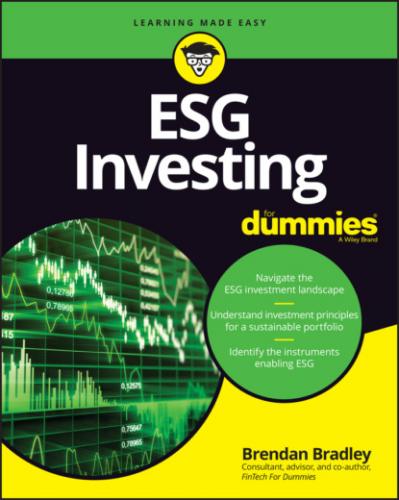Financial service professionals who want to educate themselves about ESG and sustainability, instead of bluffing their way through
Active investors who are considering increasing their asset allocation toward ESG criteria
Asset owners who are relatively new to the concept and need to understand the nuances
Company executives who recognize the need to “up their game” to improve their ESG score and ensure that their company is deemed suitable for ESG indexes and portfolios
Professional service providers, such as accountants, consultants, and lawyers, who are trying to define their places in the ESG ecosystem
Regulators, politicians, and other industry participants who are charged with safeguarding the investment community
The general assumption is that you’ll have some experience with and understanding of traditional investment, but you can build your ESG understanding as you progress through this book or dive into certain chapters that are more specific to your role or interest.
Icons Used in This Book
Like all For Dummies books, this book features icons to help you navigate the information. Here’s what they mean.
Beyond the Book
In addition to what you’re reading right now, this book also comes with a free access-anywhere Cheat Sheet that provides a mini-glossary of important ESG terms and an overview of the key topics that are driving ESG investing. To get this Cheat Sheet, simply go to www.dummies.com and search for “ESG Investing For Dummies Cheat Sheet” in the Search box.
Where to Go from Here
You don’t have to read this book in strict chapter-driven order. Each chapter is self-contained, so you can jump around as much as you like. Flip to the table of contents and the index if you’re looking for a specific topic. If you want to find out more about ESG and keep up to date on the latest developments, you should check out the following objective websites:
Principles for Responsible Investment: www.unpri.org/sustainability-issues
United Nation Sustainable Development Goals: www.un.org/sustainabledevelopment/sustainable-development-goals/
Sustainability Accounting Standards Board: www.sasb.org/standards-overview/materiality-map/
Global Reporting Initiative: www.globalreporting.org/how-to-use-the-gri-standards/
Task Force on Climate-related Financial Disclosures: www.fsb-tcfd.org/about/
ESG Clarity: www.esgclarity.com/
Part 1
Getting to Know ESG
IN THIS PART …
Discover how ESG investing isn’t to be confused with socially responsible, ethical, or impact investing.
Understand what has driven the evolution and major growth in ESG investing in recent years.
Run through the reasons why ESG is important, what the criteria for ESG ratings and metrics are, and what a company needs to do to enhance its ESG score.
Investigate the key material indicators and risks for each aspect of ESG: environmental, social, and governance.
Identify concerns around “greenwashing,” given the surge in ESG investments.
Chapter 1
Entering the World of ESG Investing
IN THIS CHAPTER
The acronym ESG has undoubtedly become one of the hottest topics in investment management in recent years. Google searches for the term “ESG investing” have grown exponentially in the last three years, so it’s certainly caught people’s attention! (Don’t believe me? Just look at Figure 1-1.) As a result, executive management has a range of new stewardship topics to contend with, now that global warming issues have created ‘E’nvironmental concerns, and the COVID-19 pandemic has further highlighted ‘S’ocial issues. (Corporate ‘G’overnance issues have always been closely monitored by the investment community.)
But what’s all the fuss about? Is ESG investing a passing fad or a long-term trend that will dominate investment management for the foreseeable future? This chapter looks at the fundamentals behind ESG investing, highlights some of the key drivers behind it, and identifies some of the goals and standards that have been established.
© John Wiley & Sons, Inc.
FIGURE 1-1: Google Trends chart — a search for “ESG Investing” over the last three years.
Surveying the Current ESG Landscape
Broadly defined as the analysis of a company’s environmental, social, and governance practices, ESG first grabbed the financial world’s attention following a 2005 United Nations Global Compact report, which
